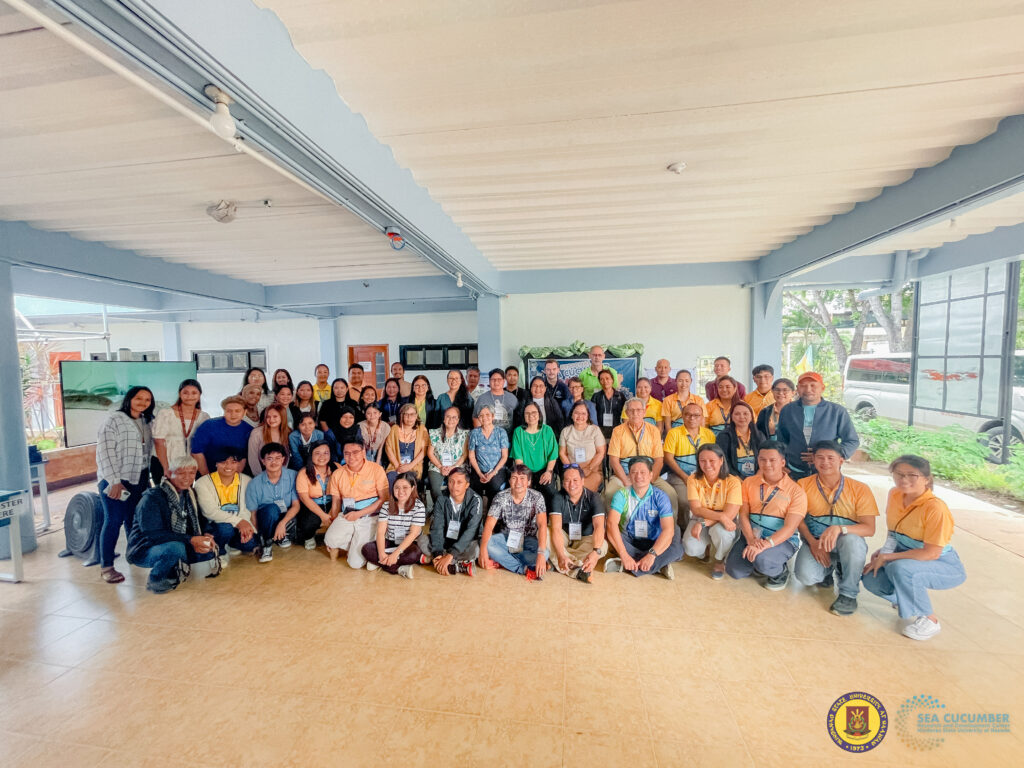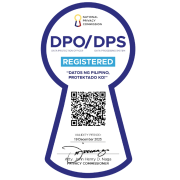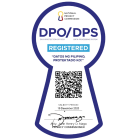
Funded by the Australian Centre for International Agricultural Research (ACIAR) Sandfish Project that aimed to enhance the skills of sea cucumber farmers in aquaculture and resource management, the Mindanao State University at Naawan (MSUN) proudly hosted the Regional Sea Cucumber Roadshow – Mindanao Node from July 18-20, 2024.
The roadshow featured practical culture methods, creating new income opportunities and diversified livelihoods, particularly for women in coastal communities.
Participants included Municipal Agriculture Officers from Local Government Units (LGUs) in Mindanao, faculty and researchers from the academe, key personnel from NGOs, DOST, BFAR, industry, and students from various universities.
Furthermore, the program focused on showcasing sea cucumber culture and fishery management initiatives in the Philippines, specifically in Mindanao, discovering new and practical culture methods, and exploring partnerships to expand farming to new localities.
Day one began with the arrival and registration of participants, followed by a welcoming ceremony. Chancellor Dr. Elnor C. Roa delivered the opening remarks, emphasizing the importance of sustainable aquaculture practices for sea cucumbers.
Afterwards, Director Dr. Mari-Aan Acedera from DOST-PCAARRD (MRRD) provided an insightful overview of the National Sea Cucumber R&D Framework, outlining the roadmap for sea cucumber research and development in the Philippines.
The afternoon was dedicated to technical sessions, starting with presentations on sandfish hatchery practices, covering spawning and larval rearing techniques. This was followed by a session on sandfish culture in ocean and pond nursery and pen grow-out by Dr. Wilfredo H. Uy, post-harvest processing by Ms. Charmjill Y. Bacsarpa, and community-based sea cucumber farming experiences by Emmylou A. Emperador. The session was also supplemented by Dr. Jon P. Altamirano, scientist from SEAFDEC, on the algal food of sea cucumber sandfish and the BFAR Region 10 on the status of sea cucumbers in Mindanao.
The day concluded with an open forum, allowing for interactive discussions and knowledge exchange among attendees.
On the second day, the program continued with a focus on practical applications and industry insights. Participants engaged in in-depth discussions on the status and trading of fisheries in Mindanao, highlighting current challenges and opportunities within the region by Dr. Elgen M. Arriesgado. A session on the hatchery production of teatfish, exploring best practices and innovative methods by Dr. Dan M. Arriesgado, followed. The concept of integrated multi-trophic aquaculture (IMTA) with sandfish was introduced, showcasing its potential benefits for sustainable farming systems by Adzel Adrian G. Baldevieso.
Workshops in the afternoon concentrated on the identification of potential areas, opportunities, issues, gaps and potential interventions that could be done related to sea cucumbers. These sessions encouraged collaborative planning and the development of strategies for effective resource management.
Moreover, the final day featured a session on genomic population studies sea cucumber and its implication by Dr. Venus E. Leopardas followed by a comprehensive review and presentation of workshop outputs. Participants shared their plans and insights gained from the roadshow, demonstrating a strong commitment to advancing sea cucumber aquaculture.
The event concluded with a closing ceremony, where certificates were awarded to participants in recognition of their contributions. Attendees also shared their impressions of the roadshow, reflecting on the knowledge acquired and the collaborative spirit fostered during the event.
Concludingly, the Regional Sea Cucumbers Roadshow successfully showcased innovative sea cucumber culture methods and facilitated partnerships aimed at expanding sustainable aquaculture practices across the Philippines. By promoting research, community development, and practical culture methods, the roadshow contributed to the ecological, economic, and social well-being of coastal communities, paving the way for a more sustainable and prosperous future in sea cucumber aquaculture.






